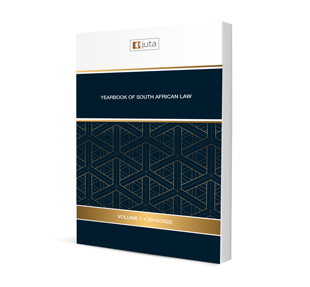Children’s Law

Children’s Law
Author Amanda Barratt
ISSN: 2710-0677
Affiliations: BA(Hons) LLB LLM PhD (University of Cape Town). Associate Professor in Private Law, University of Cape Town.
Source: Yearbook of South African Law, Volume 1, p. 97-125
https://doi.org/10.47348/YSAL/v1/i1a2